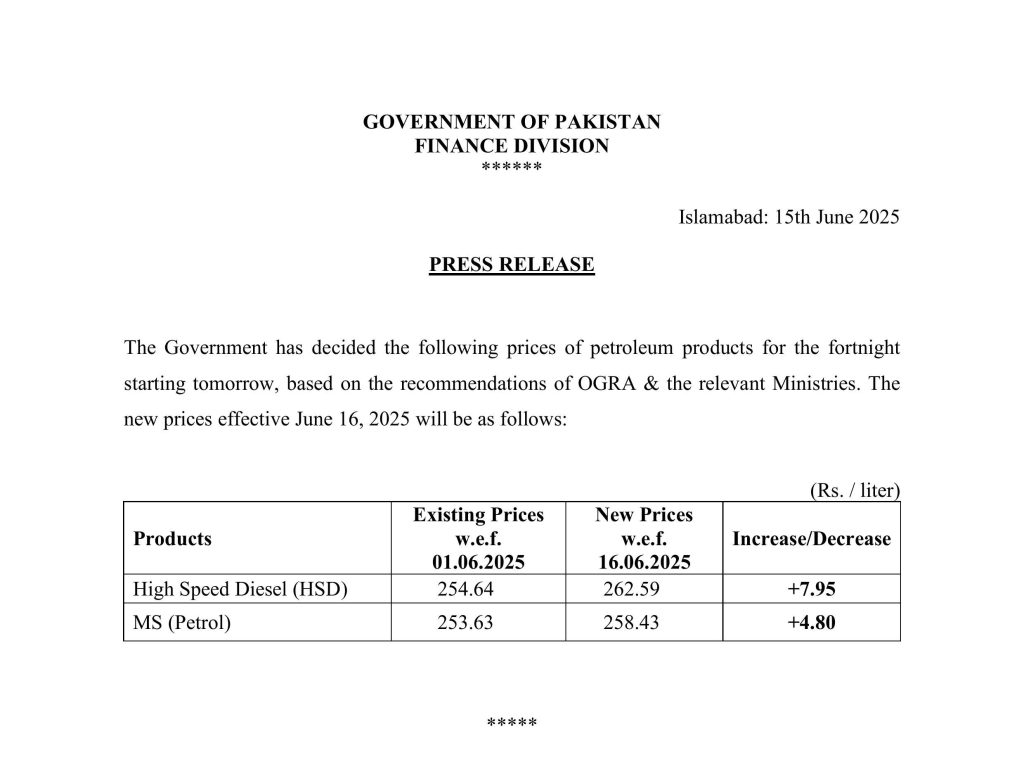

Title: Pakistan Sees a Rise in Petrol Price by Rs. 4.80 Per Liter: Consequences and Responses
In a recent update, the Pakistani government has declared an elevation in the petrol price by Rs. 4.80 per liter. This modification in fuel pricing is part of the standard biweekly evaluation carried out by the Ministry of Finance, which considers variations in global oil rates and the exchange rate of the Pakistani Rupee against the US Dollar.
**Causes of the Price Increase**
The main factor cited for the rise is the escalating cost of crude oil in the international marketplace. In recent months, global oil prices have exhibited volatility due to several elements, including geopolitical unrest, production reductions by major oil-exporting nations, and variations in demand as economies recover from the effects of the COVID-19 pandemic. Additionally, the depreciation of the Pakistani Rupee against the US Dollar has aggravated the cost of importing petroleum products, requiring local fuel price adjustments.
**Economic Consequences**
The hike in petrol prices is anticipated to create a ripple effect throughout the Pakistani economy. Transportation expenses are expected to rise, potentially resulting in increased prices for goods and services and adding to inflationary pressure. This situation is particularly alarming for the agricultural industry, where fuel costs constitute a significant part of production expenses. Rising transportation costs could also have repercussions for the logistics sector, influencing supply chains and possibly resulting in delays and increased costs for businesses.
**Effect on Consumers**
For the typical consumer, the rise in petrol prices translates to greater expenses for commuting and transportation. This is especially difficult for low and middle-income families, who may already be facing challenges due to the escalating cost of living. The spike in fuel prices may also drive up public transportation fares, further burdening household finances.
**Government Actions and Public Response**
In light of the price increase, the government has underscored the necessity of such adjustments to maintain fiscal stability and ensure the supply of petroleum products within the country. Nonetheless, this decision has faced backlash from opposition parties and the public, who contend that the government should seek alternative strategies to alleviate the burden on consumers, such as subsidies or tax cuts.
Public demonstrations and social media initiatives have arisen, with citizens voicing their displeasure over the increasing cost of living and calling for government action to regulate fuel prices. The government has, in response, encouraged the public to recognize the global factors affecting fuel pricing and has pledged to consider measures to mitigate the impact on the most vulnerable portions of society.
**Final Thoughts**
The increase in petrol prices by Rs. 4.80 per liter in Pakistan demonstrates the intricate relationship between global oil market dynamics and domestic economic hurdles. While deemed necessary from a fiscal standpoint, the price hike presents substantial challenges for consumers and the broader economy. Looking ahead, it will be essential for the government to strike a balance between fiscal responsibility and implementing measures that safeguard the most vulnerable and foster economic stability.






